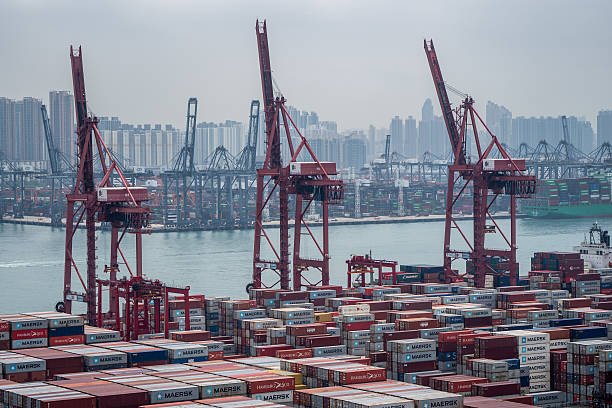Global Markets on Edge Amid Intensifying US-China Tensions
April 14, 2025
Global financial markets are showing increasing signs of volatility as tensions between the United States and China escalate, prompting fears of another wave of economic disruption. The standoff, rooted in ongoing trade disputes, technological rivalry, and military posturing, is sending ripples through global investment and trade flows.
Rising Diplomatic Friction
The latest strain stems from a new round of U.S. sanctions targeting major Chinese tech firms, citing national security concerns. In response, Beijing has vowed retaliatory measures, including restrictions on rare earth exports and audits of U.S.-linked corporations operating in China.
“Both sides are digging in deeper,” said Hannah Cole, a senior analyst at Global View Partners. “Markets are reacting not just to tariffs or sanctions, but to the broader uncertainty over what comes next in this superpower standoff.”
Economic and Market Impact
Stock markets in Asia and Europe closed lower on Monday, with the Hang Seng Index dropping 2.1% and the FTSE 100 down by 1.3%. On Wall Street, futures for the Dow Jones Industrial Average and the S&P 500 both pointed to a weaker opening.
The technology sector has been hit especially hard. Shares of U.S. chipmakers and tech giants with significant exposure to China fell sharply, while Chinese tech stocks also plunged amid fears of tighter restrictions.
The ongoing tensions are also weighing on global supply chains, particularly in sectors reliant on semiconductors, electric vehicles, and green energy components.
Currency and Commodity Volatility
Investors are turning to safe havens as geopolitical risk increases. Gold prices surged above $2,100 per ounce, while the U.S. dollar strengthened against major currencies. Meanwhile, oil prices rose slightly amid concerns that a prolonged conflict could impact global trade routes and energy markets.
Broader Implications
Experts warn that if the situation continues to escalate, it could derail global economic recovery efforts and increase inflationary pressures. “What we’re witnessing is more than just a trade war—it’s a long-term struggle for technological and geopolitical dominance,” said Dr. Marcus Li, professor of international economics at the University of Singapore.
The Path Forward
Diplomatic talks are said to be ongoing behind closed doors, but neither side has shown signs of compromise. The Biden administration has called for “strategic competition” rather than confrontation, but analysts believe rhetoric on both sides is hardening as domestic political pressures mount.
With elections looming in the U.S. and China’s leadership under pressure to maintain economic stability, the global community is watching closely. The stakes are high—not only for the two largest economies, but for the stability of the global financial system.




